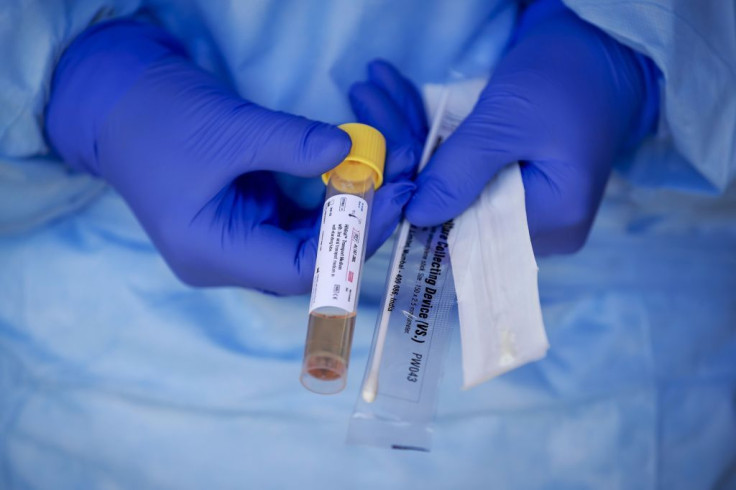Potential Coronavirus Treatment Hydroxychloroquine Enters Clinical Trial, NIH Says

A human clinical trial for an antimalarial drug -- hydroxychloroquine -- believed to be a possible treatment option for patients with COVID-19 infections began this week, according to the National Institute of Health (NIH). The worldwide death toll from the new coronavirus surpassed 101,000 amid about 1.6 million cases and more than 372,000 recoveries, according to the Johns Hopkins University tally.
On Thursday, NIH said in a news release that the clinical trial for the drug hydroxychloroquine began with the first participants enrolled at Vanderbilt University Medical Center in Nashville, Tennessee. Some 500 adults "who are currently hospitalized with COVID-19 or in an emergency department with anticipated hospitalization" are part of the trial, officials said.
During the trial, some of the patients will be treated with hydroxychloroquine while others will not. However, “all participants in the study will continue to receive clinical care as indicated for their condition,” the NIH said.
The drug has been touted as a possible treatment for COVID-19 but the effectiveness of hydroxychloroquine has been a source of debate within the medical community. Some experts have warned that it is too early to decide if this was an efficacious option in treating patients with the novel virus.
Preliminary studies have shown the drug protects lab-grown cells from the virus, the human clinical trial is aimed at evaluating its “safety and effectiveness” in treating coronavirus patients, according to the NIH.
“The drug has demonstrated antiviral activity, an ability to modify the activity of the immune system, and has an established safety profile at appropriate doses, leading to the hypothesis that it may also be useful in the treatment of COVID-19,” the NIH said in the news release, though warned: “The drug is not without risks as even short term use can cause cardiac arrhythmias, seizures, dermatological reactions, and hypoglycemia.”
“Effective therapies for COVID-19 are urgently needed,” James P. Kiley, the director of the Division of Lung Diseases at the National Heart, Lung, and Blood Institute (NHLBI), which is part of the NIH, said in a statement.
“Hydroxychloroquine has [shown] promise in a lab setting against SARS-CoV-2, the virus that causes COVID-19 and preliminary reports suggest potential efficacy in small studies with patients. However, we really need clinical trial data to determine whether hydroxychloroquine is effective and safe in treating COVID-19,” he added.



























